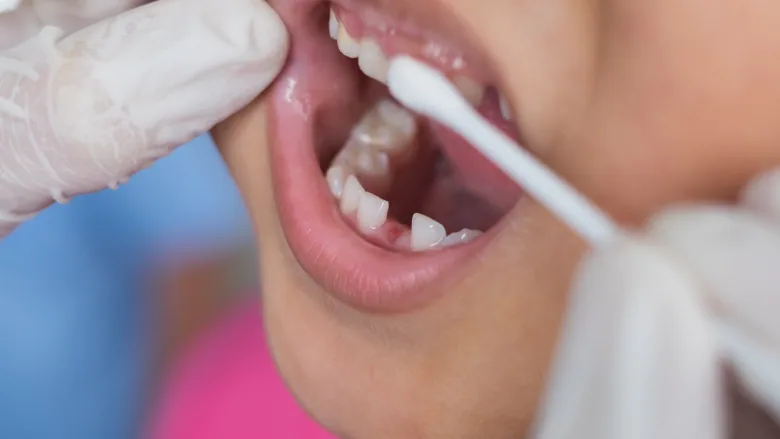Creation of a national dental care program is a condition of the Liberal-NDP agreement

The Liberal government is committed to its promise of delivering on a national dental care program, Deputy Prime Minister Chrystia Freeland said Tuesday, though she noted that creating new government programs can be complicated.
Asked about concerns voiced by NDP Leader Jagmeet Singh about the government’s ability to introduce the dental program, Freeland said it was one of the government’s pledges in its last budget.
“When it comes to dental care, we made a clear commitment in the budget to provide dental care for children under 12 in families earning $90,000 or less to provide dental care to those children this year,” Freeland told reporters after touring an automotive parts company in the Toronto area. “That was a commitment I was glad to make.”
“I think that it is very consistent with the values of Canadians. Kids should not have their teeth get rotten just because their parents don’t have enough money to pay for them to go see a dentist.”
Drawing a parallel between the promised dental program and child care agreements across the country, Freeland said it can sometimes take longer than planned to roll out government initiatives.
“Delivering new services to Canadians is complicated and I think Canadians understand that. We are working very, very hard on dental care.”
Freeland’s comments come after NDP Leader Jagmeet Singh told the Toronto Star that he is prepared to walk away from the confidence and supply deal to support Prime Minister Justin Trudeau’s minority government if the dental program for children is not implemented by the end of the year.
Singh said he also wanted the government to fulfil a second part of the deal — a $500 top up for those who receive the Canada Housing Benefit.
NDP Health Critic Don Davies said talks with his Liberal counterparts to come up with a plan for a kids dental program have been going well. Given that the program for children is the first step in a program that could cover between seven and nine million Canadians by 2025, it is important to get the structure of the program right, he said.
Davies said legislation is already being drafted and in order to get the program in place by the end of the year the legislation will have to be tabled in the first few weeks after Parliament resumes sitting Sept. 19.
Davies said the timetable also means that the initial program should be set up and funded by the federal government.
“To get this established this year, I don’t think it is controversial to say…that there’s no way you can involve the provinces and get a dental plan up and running in the next six months. They still can’t get childcare going and that’s been taking a decade.”
Participation by the provinces can come later, he said.
“If it’s 100 percent federally funded, 100 percent federally administered, we can get the plan up and going. I see a role for the provinces and territories in the future when they want to participate in this and improve the plan.”
While health care is often considered provincial jurisdiction, Davies said it is a jurisdiction shared with the federal government and he downplayed the possibility of a province objecting to the plan on jurisdictional grounds.
“I don’t think there’s a premier in the country that wouldn’t want to see citizens in their provinces and territories who don’t have access to dental care get access to that primary health care for free…I don’t know if anybody is going to hold up a constitution to prevent a 7-year-old who can’t get dental care from getting dental care.”


